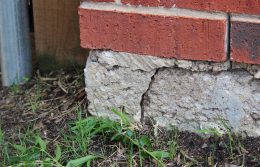Vetting Your Potential Home Inspector
Talk about an investment with the potential for big-time dividends.
Paying a home inspector between $300 and $500 to evaluate the house you want to buy could save you from a world of trouble if they sniff out anything from suspect wiring to substandard plumbing to foundation problems.
But a home inspector who’s popular with local real estate agents might have a reputation for overlooking some issues, thereby smoothing the way to a quick sale. So how do you find one who has high standards — and the client’s interest at heart?
What They Should Evaluate
Home inspectors should evaluate the following: heating and cooling systems, plumbing, electrical system, roof, attic, insulation, walls and ceilings, windows, floors, and foundations.
What You Should Ask
The U.S. Department of Housing and Urban Development and the American Society of Home Inspectors recommend taking the following steps:
- Ask for a sample report to see what your would-be inspector typically evaluates. This document should clearly spell out (without too much legal jargon) what the inspector saw in need of repair.
- When interviewing a potential inspector, inquire if they look at appliances and pools, too, and what else they scrutinize.
- Request a referral list of at least 10 former clients. Speak to three of them.
- Ask for experience — years on the job and number of houses inspected a year.
- Does this home inspector maintain membership in any state or national professional associations? This can give clues about his or her professionalism and commitment to the industry.
- Ask if you can attend the inspection. (Even if you don’t intend to go, the answer could prove illuminating.)
- In hurricane-prone areas, look for an inspector with specialized education and training.
With these tips in mind, you’re on your way to a great experience and a safe home purchase. In the home market? Find out how home staging could help you sell faster.
© 2014 Texas Farm Bureau Insurance



